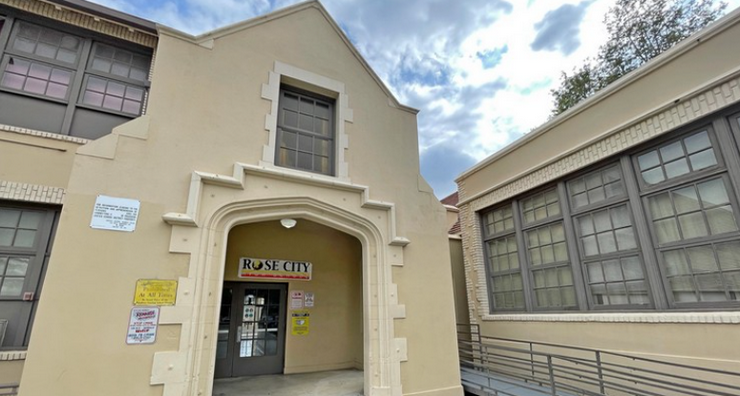
Every time you use a credit card to make a purchase, there’s a strong chance that you’re interacting with one of Tim Litle’s products or companies. Over his five-decade career, Litle has been responsible for a number of major innovations in marketing and financial services, new methods that include making credit-card transactions more secure. The next time you enter that three-digit code on the back of your card, or your zip code at a gas pump… thank Litle.
Litle grew up in Grosse Pointe, Michigan, a suburb of Detroit. At a time when the automotive industry was at its peak in the city, he learned how to take apart car engines, which fostered an interest in mechanics. Litle recalls his father, who worked for Time Inc., one day dropping a copy of Time magazine in front of him. “My dad pointed to the cover, which showed [Caltech’s then president] Lee DuBridge and said, ‘This school is the perfect place for you,’” Litle says.
While at Caltech, Litle found an environment where he could pursue his interests. “I loved the science, in particular Feynman’s and Pauling’s courses,” Litle says. “But I was always more of the hands-on type.” Litle went directly on to Harvard Business School, then ventured into industry.
In the late 1960s, Litle quickly stumbled upon his first major, though perhaps not-so-glamorous, innovation: presorted bulk mailing. While working with the Christian Science Monitor, Litle learned that a large portion of the national newspaper’s mailings didn’t show up on time. “Wednesday’s paper would go out across the country—and only about 70 percent actually showed up on Wednesday,” Litle says.
He traced the problem to the post office, where a byzantine set of rules governed mass mailings. “The postal workers were trying to follow a telephone-sized book of regulations they often didn’t understand,” he says. Litle realized that if the Monitor could prepackage their mailings already sorted and in compliance, essentially ready to mail, they would be easier for the post office to process. The result: On-time delivery jumped to 92 percent. The postal administration quickly took notice. “Not only was it more reliable, it reduced the government’s costs by about 60 percent,” Litle says. Soon the post office began to offer incentives for other companies to follow suit, and within a few years the industry standardized the practice. Today, nearly all bulk marketing mail is marked “presorted.”
Even more transformational are Litle’s innovations in the financial sector. While building a catalog merchandising business with his wife in the early 1980s, Litle became interested in how items were paid for. Then, customers typically mailed or phoned in their orders with credit-card numbers. But in the days before computers became ubiquitous, there was little ability to verify identification or resolve disputes without the card present. The process was vulnerable to error and deception.
“We wrote down 2 percent a year to fraud,” Litle says. “It turned out that everybody in the catalog industry was experiencing similar issues. Nobody knew what to do.” Litle’s colleagues in the industry encouraged him to explore the problem.
Litle developed technology that allowed merchants to verify customer information and armed them in disputes with card-issuing banks. In addition, he created systems so that as transactions snaked their way through the financial networks, detailed information was attached and their history could be traced. According to Litle, losses from card-notpresent transactions initially declined to 0.15 percent. The catalog industry saved about a billion dollars annually.
The ramifications of Litle’s innovations extended well beyond the catalog business to all parts of commerce.
“Litle’s technical contributions to the direct-marketing industry are legendary,” says Jonah Gitlitz, who was president of the Direct Marketing Association from 1985 to 1996. “He was also a passionate and outspoken advocate about issues related to ethics and privacy.”
Over the next three decades, Litle, through a number of ventures and companies, introduced ever more sophisticated technologies and procedures to aid in securing transactions. He was an early leader in the use of Agile software development and pair programming, efficiency measures that many companies have since adopted. “Before the Internet, we learned to develop software systems that have demonstrably helped customers and merchants for decades,” Litle says.
While much of Litle’s work is behind the scenes, perhaps his most instantly recognizable result is the security code found on the back of most U.S. credit cards, introduced in the early 2000s.
“I’m always amused that people seem to focus on the three-digit code, it’s really the tip of the iceberg representing the work that I and my companies have done,” Litle says.
Once a relatively small slice of activity, card-not-present transactions are now the foundation of today’s Internet-connected global commerce. According to the Nilson Report, which tracks consumer finance, the purchase volume using Visa debit cards alone has grown from $43 billion in 2000 to $1.27 trillion in 2014. Such growth is only expected to continue.
At the same time, though, fraudulent activity has also become considerably more sophisticated with hackers regularly trading in stolen credit cards in dark corners of the Internet. Litle’s strong ethical stance regarding privacy, which once affected only direct marketers, now seems prescient.
“When I started, most fraud was conducted by amateurs,” Litle says. “Now it’s a professionalized industry. Combating it will take creative and aggressive thinking.” Still, Litle is enthusiastic about the future as the world moves toward more digital currencies. “The challenges are greater today, but so are the possibilities,” he says. “This remains a fascinating and truly exciting field.”














 0 comments
0 comments


